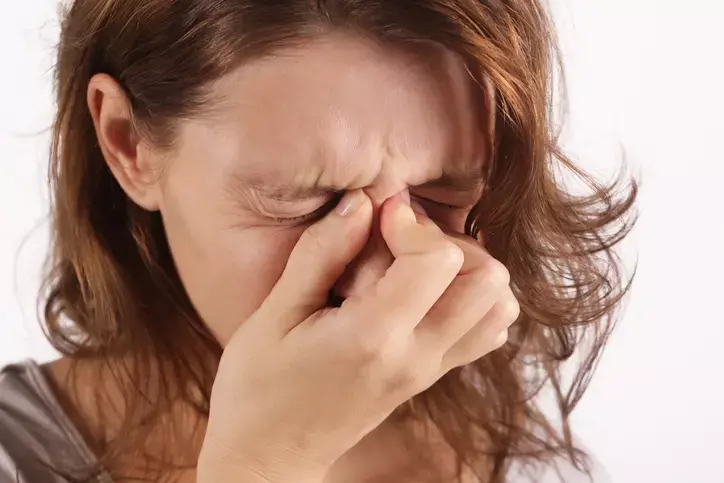- Home
- Medical news & Guidelines
- Anesthesiology
- Cardiology and CTVS
- Critical Care
- Dentistry
- Dermatology
- Diabetes and Endocrinology
- ENT
- Gastroenterology
- Medicine
- Nephrology
- Neurology
- Obstretics-Gynaecology
- Oncology
- Ophthalmology
- Orthopaedics
- Pediatrics-Neonatology
- Psychiatry
- Pulmonology
- Radiology
- Surgery
- Urology
- Laboratory Medicine
- Diet
- Nursing
- Paramedical
- Physiotherapy
- Health news
- Fact Check
- Bone Health Fact Check
- Brain Health Fact Check
- Cancer Related Fact Check
- Child Care Fact Check
- Dental and oral health fact check
- Diabetes and metabolic health fact check
- Diet and Nutrition Fact Check
- Eye and ENT Care Fact Check
- Fitness fact check
- Gut health fact check
- Heart health fact check
- Kidney health fact check
- Medical education fact check
- Men's health fact check
- Respiratory fact check
- Skin and hair care fact check
- Vaccine and Immunization fact check
- Women's health fact check
- AYUSH
- State News
- Andaman and Nicobar Islands
- Andhra Pradesh
- Arunachal Pradesh
- Assam
- Bihar
- Chandigarh
- Chattisgarh
- Dadra and Nagar Haveli
- Daman and Diu
- Delhi
- Goa
- Gujarat
- Haryana
- Himachal Pradesh
- Jammu & Kashmir
- Jharkhand
- Karnataka
- Kerala
- Ladakh
- Lakshadweep
- Madhya Pradesh
- Maharashtra
- Manipur
- Meghalaya
- Mizoram
- Nagaland
- Odisha
- Puducherry
- Punjab
- Rajasthan
- Sikkim
- Tamil Nadu
- Telangana
- Tripura
- Uttar Pradesh
- Uttrakhand
- West Bengal
- Medical Education
- Industry
Nonmedicated control substances Show Limited Efficacy in Chronic Sinusitis: Study

Chronic rhinosinusitis (CRS) is a significant health problem and affects 5% to 12% of the general population. A study published in the JAMA Otolaryngology-Head & Neck Surgery on November 12, 2020, suggests that nonmedicated control substances are associated with limited improvements in the 22-item Sinonasal Outcome Test and nasal obstruction scores.
CRS is a clinically challenging disease; as in asthmatic patients, symptoms lack good correlation with objective measurements because of the lack of a gold standard. It is usually treated with nasal corticosteroids, over-the-counter medications or non-medicated substances like saline nasal irrigation/nasal sprays. However, the effect of nonmedicated control substances in chronic rhinosinusitis remains unclear. Therefore, Dr Lisa Caulley and team conducted a study to assess the association of nonmedicated control substances in randomized clinical trials with disease outcomes in patients diagnosed with chronic rhinosinusitis.
It was a single-arm systematic review and meta-analysis. Researchers evaluated the databases of the Cochrane Library of Systematic Reviews, Ovid MEDLINE, Embase, PubMed, and ClinicalTrials.gov for randomized clinical trials with a preintervention and postintervention design for chronic rhinosinusitis that were published between 1946 and January 23, 2019. Paired reviewers independently extracted data. The major outcomes assessed were the association of nonmedicated control substances with 22-item Sinonasal Outcome Test (SNOT-22) scores or nasal symptom scores when SNOT-22 was not available. Researchers screened a total of 2305 abstracts and included 38 articles in the meta-analysis.
Key findings of the study were:
• Upon analysis, they found that the topical nonmedicated control substances were associated with a significant reduction in SNOT-22 scores (mean difference [MD], −8.81).
• They conducted a subgroup analysis of topical therapies, limited to saline irrigation and nasal spray diluents and found that topical diluents were associated with a greater reduction in SNOT-22 scores (MD, −11.45) compared with saline irrigation (MD, −13.60).
• They also found that nonmedicated control substances were associated with a significant reduction in nasal obstruction scores (standardized MD [SMD], −0.42).
• However, they found no significant changes in rhinorrhea scores (SMD, −0.34), postnasal drip scores (SMD, −0.96), facial pain scores (SMD, −0.57), or loss of smell scores (SMD, −0.18).
The authors concluded, " This systematic review and meta-analysis of the use of nonmedicated control substances in randomized clinical trials of chronic rhinosinusitis outcomes suggest that the use of nonmedicated control substances is associated with limited improvements in SNOT-22 and nasal obstruction scores."
They further added, "These findings highlight potential areas of future research directions and the importance of randomized clinical trials to accurately estimate the treatment effect."
For further information:
https://jamanetwork.com/journals/jamaotolaryngology/article-abstract/2772878
Medical Dialogues Bureau consists of a team of passionate medical/scientific writers, led by doctors and healthcare researchers. Our team efforts to bring you updated and timely news about the important happenings of the medical and healthcare sector. Our editorial team can be reached at editorial@medicaldialogues.in.
Dr Kamal Kant Kohli-MBBS, DTCD- a chest specialist with more than 30 years of practice and a flair for writing clinical articles, Dr Kamal Kant Kohli joined Medical Dialogues as a Chief Editor of Medical News. Besides writing articles, as an editor, he proofreads and verifies all the medical content published on Medical Dialogues including those coming from journals, studies,medical conferences,guidelines etc. Email: drkohli@medicaldialogues.in. Contact no. 011-43720751


